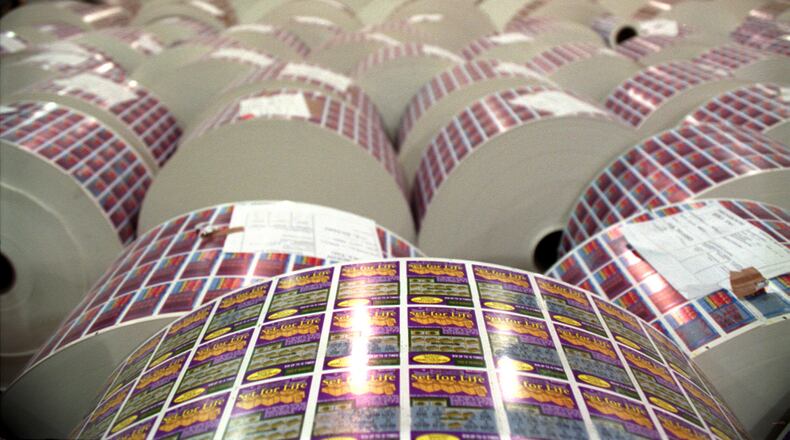A supply worker at Scientific Games in Alpharetta where scratch-off lottery tickets are made has tested positive for COVID-19, according to a company statement issued Monday.
The company said the person who tested positive worked in the printing area but did not touch the lottery tickets. The person is an employee of a metro Atlanta supplier that provides materials to Scientific Games.
Located in a portion of Forsyth County that carries an Alpharetta mailing address, Scientific Games employs about 1,000 workers and produces a variety of lottery tickets for scratch-off instant games for the Georgia Lottery.
According to Pat McHugh, executive vice president and lottery chief executive for Scientific Games, the plant follows virus safety guidelines issued by the Center for Disease Control and Prevention.
McHugh said the worker followed social distancing rules and though he did not touch lottery tickets, any that were in production have been quarantined and will be destroyed.
The Georgia Lottery declined to comment on the news.
Duties of the person who tested positive included exchanging barrels of ink.
“Our entire facility has been deep cleaned by a professional third-party service, including the forklifts and all machinery and tools utilized by the supplier’s employee, as well as all common areas,” said McHugh.
In normal production, lottery tickets are placed under dryers blowing at a temperature of 350 degrees, as well as an ultraviolet light, McHugh said.
Most employees have been working remotely, he added.
Marie Charles of Alpharetta said her son and daughter are working 12-hour shifts at the plant. She questioned whether social distancing guidelines were followed at the plant.
“My son works in the assembly line area where the tickets go after they are printed.” Charles said. “Dozens of people that work there live in Hall, Forsyth and Gwinnett [counties]. What if the person had no symptoms and came in contact with people who are going to all of those areas?”
Scientific Games human resources team and management have stayed in communication with employees about issues surrounding the virus outbreak, said McHugh.
“Their safety and health and their families’ safety and health comes first,” he said. “They do not have to come to work.”
About the Author
Keep Reading
The Latest
Featured


